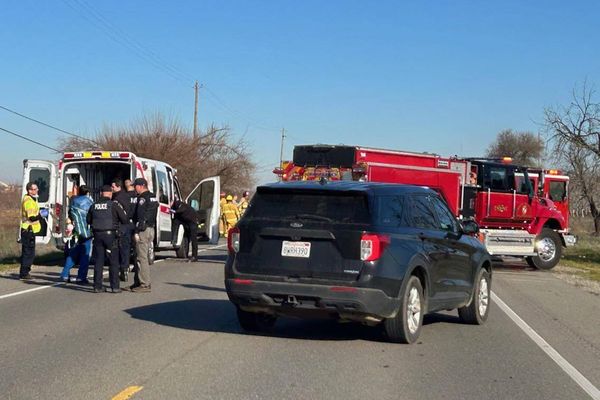
Vienna – Austria's JJ won this year's contest, held in Basel in Switzerland, meaning his home country will stage the 2026 event. Its capital, Vienna, was announced on Wednesday as the host city, beating out rival bidder Innsbruck.
JJ – otherwise known as Johannes Pietsch – gave Austria its first victory since bearded drag performer Conchita Wurst's 2014 triumph.
Vienna, which hosted the contest in 1967 and 2015, edged out its competitor Innsbruck to stage next year's contest, Austrian public broadcaster ORF announced.
The final of Eurovision's 70th edition will be held on 16 May, 2026 at the Wiener Stadthalle, Austria's largest indoor arena, with semi-finals set for May 12 and 14, Eurovision said.
Since its inaugural show in 1956, hosted by Switzerland, Eurovision has become the ultimate pop platform, catapulting Swedish icons ABBA to worldwide fame and launching the career of Celine Dion, who competed for Switzerland in 1988.
It is the world's biggest annual live televised music event, and some 166 million viewers in 37 countries watched this year's contest, with a record 60 percent of viewers aged 15 to 24 tuning in. The competition got even more views on Instagram and TikTok.
Israel controversy
Created to foster European unity in the wake of the Second World War, the show has nonetheless drawn controversy throughout its history.
Austria staged a protest over General Franco's dictatorship in Spain in 1969 and Greece submitted a song in 1976 slamming Turkey over its invasion of Cyprus.
Russia's invasion of Ukraine in 2022 dominated that year's contest – which Ukraine won and from which Russia was (and still is) barred – while 2024 saw protests over Israel's war in Gaza, after Eurovision allowed the former to continue to participate in the contest.
These continued this year, with pro-Palestinian protesters clashing with police in Basel.
Spain's public broadcaster asked the European Broadcasting Union, which organises Eurovision, to open a "debate" on whether Israel should be allowed to take part, a move also backed by Iceland and Slovakia, while a protest took place outside the offices of Irish broadcaster RTE calling for it to withdraw from the contest in protest at Israel's inclusion.
Last year's winner Nemo also joined calls for Israel to be ejected, saying: "Israel's actions are fundamentally at odds with the values that Eurovision claims to uphold – peace, unity, and respect for human rights."
In response to the criticism, Eurovision director Martin Green said: "As a reminder, the EBU is an association of public service broadcasters, not governments.
"As part of its mission to secure a sustainable future for public service media, the EBU is supporting our Israeli Member KAN against the threat from being privatised or shut down by the Israeli government."
Eurovision returns amid protests over Palestine, Pride flags and parody lyrics
Israel's 2025 entrant Yuval Raphael survived the 7 October, 2023 attack on Israel that sparked the Gaza war, hiding beneath bodies as Hamas gunmen attacked a music festival.
As the televotes came in, Israel held the top spot until, right at the very end, the public votes for Austria clinched the win for JJ.
In an interview following his win, he called for Israel to be excluded from next year's competition, sparking a storm of criticism in Austria, a staunch supporter of Israel.
"It is very disappointing to see that Israel continues to participate in the contest," the 24-year-old told Spanish daily El Pais. "I would like next year's Eurovision to take place in Vienna without Israel."
The country's public broadcaster ORF distanced itself from his remarks, saying they "reflected a personal opinion".
The singer has since sought to defuse the controversy, saying via his record label Warner that he was "sorry if his comments had been misinterpreted".
Israel has confirmed its intention to participate in next year's event.
'Europe, shall we dance?'
Under the slogan "Europe, shall we dance?", Vienna, famed for its classical music heritage and the baroque splendour of its architecture, cited its experience in hosting big events in its push to win the bid.
The chosen venue, the Wiener Stadthalle, also hosted Eurovision in 2015. Located in central Vienna, it opened in 1958 and seats 16,000 people in its main hall.
The city also touted its "enormous" accommodation capacities, its "excellent" transport links, and its "cosmopolitanism", with 2 million people living in the Austrian capital.
Thousands rally in Austria as far-right Freedom Party eyes power
Austria's far-right Freedom Party, which topped elections for the first time last year but failed to form a government, has described Eurovision as a "queer, left-wing, woke spectacle" and criticised Vienna for wanting to stage it despite the high costs. Basel put up nearly $40 million to host the contest.
The last time the Austrian capital hosted Eurovision, the city installed traffic lights showing same-sex and heterosexual couples instead of a single figure – which proved so popular that the city authorities decided to keep them for good.
(with newswires)







